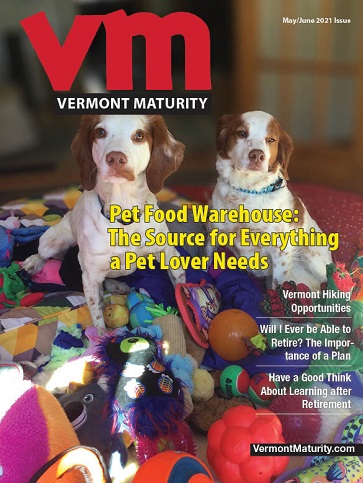
Instead of asking yourself, what might provide me with the best rate of return, you should be asking yourself, what will guarantee me the most income?
Running out of money in retirement is the biggest concern for most people I work with. Your longevity requires more income and more consideration of other elements of retirement. There may be things you had not considered in your plan; hidden housing costs, uncovered health care expenses, long-term care, children who need help, losing a spouse, etc.
Generally speaking, the healthier you are, the longer you will live and the more money you will need in retirement. I wanted to see my own longevity and went to a website called Livingto100.com (Livingto100.com/calculator/age). I used the calculator to estimate how long I would live and what impact that may have on my retirement savings, both in terms of not outliving my money, but also in terms of living a meaningful life, which in my case could last three decades. The results – I have a life expectancy to age 98, living 19 years longer than most and spending hundreds and thousands of dollars more. Longevity is something that can be planned for and often yields pleasant surprises.
The goal as you near retirement is to preserve and accumulate, not speculate. In simpler terms, you have money that is known and money that is not known. Money that is known would be cash, annuities (income), social security, insurance, pension, etc. Generally, these would be considered guaranteed monies. Money that is not known would be stocks, bonds, real estate, commodities like gold & silver, etc. These are not guaranteed and may fluctuate in value and affect or erode your income over time, with a risk of outliving your money.
If you expect to live longer than most, you will have to stretch your retirement savings further. Diversifying your portfolio is a good way to create a personal pension or guaranteed lifetime income.
Retirement is better when individuals can define not only what their retirement might look like but also use this vison to plan and set expectations relative to their resources. There are investment strategies that can be used to help a retiree (or soon-to-be retiree) build financial bridges to retirement, even if they fallen behind in their savings.
According to the Federal Reserve (December 2020), nearly 70% of Americans are concerned that they do not have enough money for retirement.
A new client recently told me, “When I realized I had to retire on what I have accumulated, that’s when it became real.” That epiphany might literally mean monetizing everything you own and living on a budget; the difference between wanting to versus needing to. I have found that most people have time to catch up, but they need a good roadmap that they understand and can use to implement positive alternatives. Unfortunately, most of us will not make changes until the pain of staying the same is greater than the pain of change. And this is especially true when it comes to financial decisions. But it is incumbent on you to find out where you are before it is too late.
What does “retirement” mean? One idea of retirement might be to stop working altogether, travel and have fun. For another it might mean working a part-time job or volunteering. But for many others, the idea of “retirement” is far off. I think the real questions are: Can I afford to retire? Have I socked away enough? How much do I need and how long will it last? How do I figure all of this out? And what, specifically, do I need to do in the meantime to preserve what I have and what do I need to do to catch up and be prepared?
Many people have bought into their own narrative or belief system and are frightened and feel (or know) they are not prepared. As a result, they do nothing or just put it off for another day. I hope that is not you.
When I ask people what they want, the answer is always the same; a reliable and predictable income for as long as I or we live.
Would you like to feel more secure about your future, your retirement, your longevity planning? Change is the difficult part, even if you know it is better for you. Having enough or more money is simpler than you know if you have the right plan and are willing to follow it.
Kirk Shamberger is a partner with C.K. Financial Resources and has over 30 years of experience in the financial services industry specializing in retirement strategies. He may be contacted at Kirk Shamberger 802-238-8187 or kirk@ckfinancialresourcs.com.
Related Articles & Free Vermont Maturity Subscription

A Snowbird’s Financial Packing List
How to Avoid the Retirement Mistake of Not Having a Plan
Investment Fraud is a Special Concern Among Seniors and Baby Boomers







Comment here